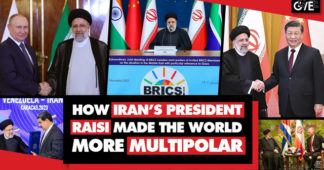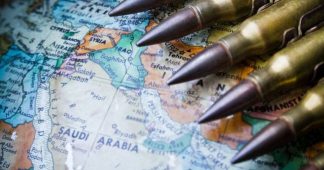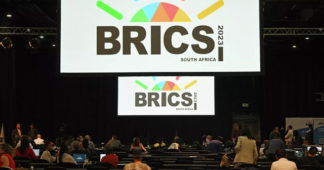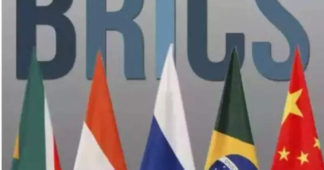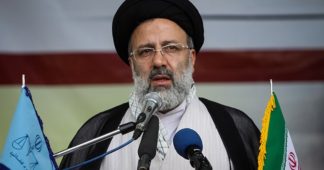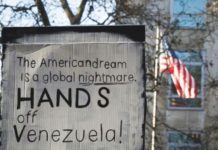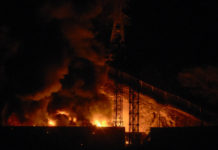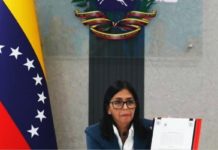By Marwan Emil Toubassi*
The upcoming BRICS summit, set to be held in the Russian city of Kazan in the coming days, takes place amid a world full of rapid transformations and challenges, particularly in the Middle East. This is especially relevant in relation to the genocide, displacement, and ethnic cleansing being carried out by the occupying state against our Palestinian people and the Lebanese people, most notably the unprecedented massacres against our people in northern Gaza. These atrocities are reminiscent of the Nazi Holocaust crimes against European peoples. Furthermore, the U.S. continues to ignite conflict zones in other parts of the world and carries out long-standing crimes throughout history against various nations.
Russia leads this summit on its soil in an effort to thwart Western attempts to isolate it and to confront the Western alliance. Moscow seeks to work with other nations to counter Western hegemony, strive for a multipolar international system, reform the global financial system, end U.S. dollar dominance, and combat the control of the World Bank, which serves the interests of Western nations.
Political and Economic Challenges Facing BRICS
The core focus of this Chinese-Russian initiative is primarily on establishing a new payment system based on a network of commercial banks linked together through the central banks of BRICS countries. These nations collectively account for 37% of the global economic output. There are also efforts to establish a grain trading exchange affiliated with BRICS to set global prices for agricultural products, particularly given that Russia is the world’s largest wheat exporter.
BRICS nations face these challenges as Western powers, specifically the U.S. and Israel, accelerate efforts to implement the New Middle East project, also referred to as Greater Israel. Meanwhile, the repercussions of the proxy war in Ukraine against Russia continue to unfold on both international and regional levels. This is in addition to U.S. interference in several Latin American countries, the ongoing embargo on Cuba and Venezuela, and Western interventions in Africa. These factors underscore the need for a larger role for BRICS countries in confronting these pressures and risks, which threaten international peace and security, the principle of peoples’ freedom, and attempts to sustain the dominance of monopolistic corporations.
Confronting Western Intervention and Hegemony
This approach aims to strengthen security, economic, and political cooperation in light of Western efforts to impose hegemony and destabilize sovereign nations, including BRICS countries and the Global South. The persistent attempts to interfere in nations’ affairs through sanctions, economic threats—particularly against China—and support for international terrorism are driving BRICS countries to enhance cooperation and coordination in this field. BRICS stands as a cornerstone in the pursuit of a multipolar world order, which contrasts with the interests of Western powers that seek to maintain their dominance within a unipolar international system.
Regional Challenges and Their Global Impact
Our region is facing increasing geopolitical challenges, particularly in light of the continued colonial occupation and the escalation of Israeli crimes against our Palestinian people. Additionally, there are efforts to expand the influence of the Israeli occupying state, which has no defined borders, at the expense of neighboring countries, as seen in southern Lebanon and the maps announced by Netanyahu and members of his government. These challenges underscore the importance of cooperation among BRICS countries to support the sovereignty of nations and curb Western interventions. The role of BRICS in confronting these challenges also manifests through its support for regional issues like Palestine and Lebanon. The alliance can provide indirect or even direct support to these countries in their confrontation with foreign interventions, including military support to Iran, a BRICS member, and to Syria through Russia’s presence there.
We and the BRICS Group
During President Mahmoud Abbas’s visit to Moscow two months ago, the State of Palestine submitted an application for membership in this international group. President Putin has invited President Abbas to participate in the upcoming BRICS summit, which will be held in Russia in a few days. The planned special session on Palestine during the summit, as announced, reflects the group’s interest in the national cause and the rights of our people. The BRICS countries have consistently advocated for ending the genocide and Israeli occupation, enabling our people to exercise their right to self-determination and establish an independent sovereign state.
Global Economy and Trade: Attempting to Break Hegemony
In addition to the political and security aspects, BRICS countries are taking economic measures to limit the dominance of the U.S. dollar in the global economy. There are increasing efforts to adopt local currencies in trade exchanges among BRICS nations, as announced in the recent period, particularly by China, which is facing an economic war and military provocations from the U.S. and Western alliance in the South China Sea. This poses a direct threat to the current financial system dominated by the U.S. Implementing such policies will reduce dependence on the dollar and increase the resilience of member countries’ economies.
In conclusion, as BRICS is expected to play an increasingly significant role, whether in security, economic, or political domains, this emerging global group must take more effective measures and sanctions against Israel. Foremost among these should be forming an international coalition to suspend the occupation state’s membership in the United Nations and reconsider all relations between BRICS countries and Israel as a colonial, settler, apartheid regime, advocating its boycott, particularly by China and Russia. With the expected increase in Western pressures, BRICS nations will face substantial challenges, yet I believe they possess the necessary tools to confront these challenges and offer a new model of international cooperation, contributing to justice for nations and helping resolve the Middle East problem represented by the ongoing Israeli occupation.
* Former Ambassador of Palestine to Greece
